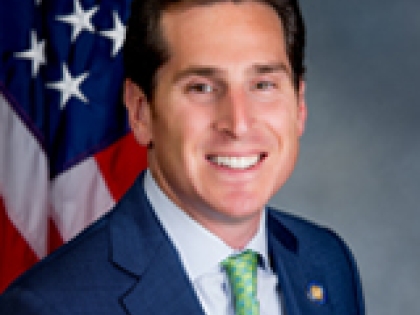
Meet the MTA's Capital Program Review Board
With unanimous approval by the Metropolitan Transportation Authority board last month, the MTA’s $51.5 billion capital plan was delivered on Oct. 1 to an obscure panel known as the Capital Program Review Board — which now has 90 days to approve it.
The board has four members — nominated by Gov. Andrew M. Cuomo, Mayor Bill de Blasio, Senate Majority Leader Andrea Stewart-Cousins and Assembly Speaker Carl Heastie. Cuomo has final say over the members’ appointments. Any one member holds veto power over the capital plan, although de Blasio’s representative has say only over the New York City Transit piece of the plan.
But in a radio interview this week, Cuomo suggested that the principals themselves — Cuomo, de Blasio, Stewart-Cousins and Heastie — should sit on the board, rather than appointed representatives. That, he said, would provide “real political accountability and transparency.” This week, various transit advocates supported the idea.
In the past, the CPRB has included representatives who sought improvements to subway stations in their districts, or other goodies, in exchange for their approval of the broader capital plan. Most recently, the 2015-2019 capital plan was held up when local village mayors and state senators had concerns about the LIRR’s third-track project. The board’s meetings have at times been held behind closed doors — and as far as The Point could determine, it doesn’t have a functioning website. There’ve been additional calls over several months for the CPRB to follow the Open Meetings Law.
Cuomo’s call comes as intense conversations begin with state and city officials over the 2020-2024 capital plan. The MTA hopes the state and the city each put in $3 billion toward the plan. While there’s been general support, concerns have emerged over the plan’s size, whether the MTA can get it done, and how some of the money has been divvied up.
That became clear even during the MTA board’s discussions last month, when representatives of Metro-North territory argued that the Long Island Rail Road should not be getting $1 billion more than Metro-North.
Stewart-Cousins told The Point Friday that while there are additional Metro-North needs she’d like to see included in the capital plan, she wants to find a way to do it without taking anything from the LIRR.
But Stewart-Cousins nominated State Sen. John Liu, of Queens, to the CPRB, another representative from NYC.
Stewart-Cousins said she chose Liu for his transportation and finance background, and that he would well represent everyone’s needs and that she would be just as accountable for what happens on the CPRB with Liu as her representative.
“There are a lot of big decisions that get to be made. None of them are made in a vacuum. None of them are made without me, and certainly without my members on Long Island,” Stewart-Cousins said.
Liu told The Point that subway signals and cars, and buses, are key priorities for him, but that he also supports the needs of the LIRR — including finishing the third track and East Side Access projects.
“Transportation is regional,” Liu said. “My view of this is that none of these items can be isolated.”
Meanwhile, State Sen. Todd Kaminsky told The Point he expects that no matter who’s sitting on the CPRB for the Senate, the Long Island delegation will play a key role in making sure the LIRR gets the money it needs. The next capital plan allocates $5.7 billion for the LIRR.
“Whatever decision will be made will be made with our input,” Kaminsky said. “We will be involved in every decision there.”